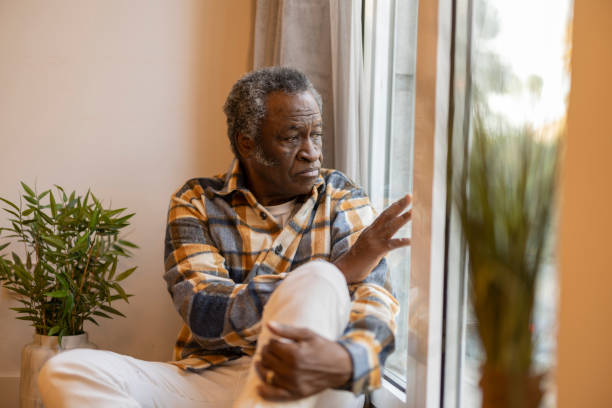Older adults who were already isolated before the COVID-19 pandemic experienced less of a shock to their well-being than their more socially connected peers, concludes a UK analysis published yesterday in PNAS.
University College London researchers surveyed 4,636 isolated and nonisolated adults aged 50 or older from the English Longitudinal Study of Ageing about quality of life, loneliness, health behaviors, financial concerns, and internet use in June and July 2020 (early pandemic) and November and December 2020 (later pandemic) compared with 2018 and 2019.
The average participant age was 66.8 years, and all were living in private households. Isolated adults were more likely than nonisolated participants to be men, live alone, have a limiting chronic medical condition, have less educational attainment, work, and be of lower socioeconomic status.
Social isolation was defined in terms of social life (partnership status, contact with family and friends, and participation in organizations).
"Social isolation has been recognized as a public health problem, given its associations with increased risks of mortality, and an array of physical and mental health conditions," the study authors noted. "This problem was of particular concern during the COVID-19 pandemic, when lockdowns and social distancing restrictions were imposed worldwide."
Nonisolated adults increased internet use
Before the pandemic, isolated participants reported lower life satisfaction, quality of life, and physical and mental health than their more socially connected counterparts.
From before to during the pandemic, isolated participants (29% of the total) reported smaller decreases in life satisfaction and quality of life and a lesser rise in loneliness than their more connected counterparts. The isolated group showed greater drops in smoking and physical activity and were more likely to continue worrying about their future finances.
Isolated adults didn't change their use of the internet, while their nonisolated peers reported increased use. Both groups reported no change in general health and sleep quality, increased depression and anxiety, and decreased expectations of future financial problems.
Established coping strategies may have eased disruptions
Isolated participants "may have even been better placed to cope and adapt, potentially via existing routines and arrangements that supported their isolated lives (e.g., delivery of groceries and medication)," the authors wrote.
Although isolated older adults generally show poorer outcomes than their socially connected counterparts, they were somewhat protected during the pandemic on some fronts.
"It is likely that the nonisolated group experienced a greater disruption in their habitual routines and rhythms, including missing meaningful social events and gatherings, which possibly eroded their sense of meaning and significance."
Social isolation can be mitigated by building age-friendly communities that enable in-person interactions, implementing community projects that facilitate social engagement, providing information and communication technology training to improve digital skills and attitudes, and removing financial barriers to internet use, they added.
"Although isolated older adults generally show poorer outcomes than their socially connected counterparts, they were somewhat protected during the pandemic on some fronts," the researchers wrote. "Such insight can be useful in targeting social isolation interventions toward a better allocation of resources, besides informing future policies on isolation, quarantine, and social distancing measures."




















